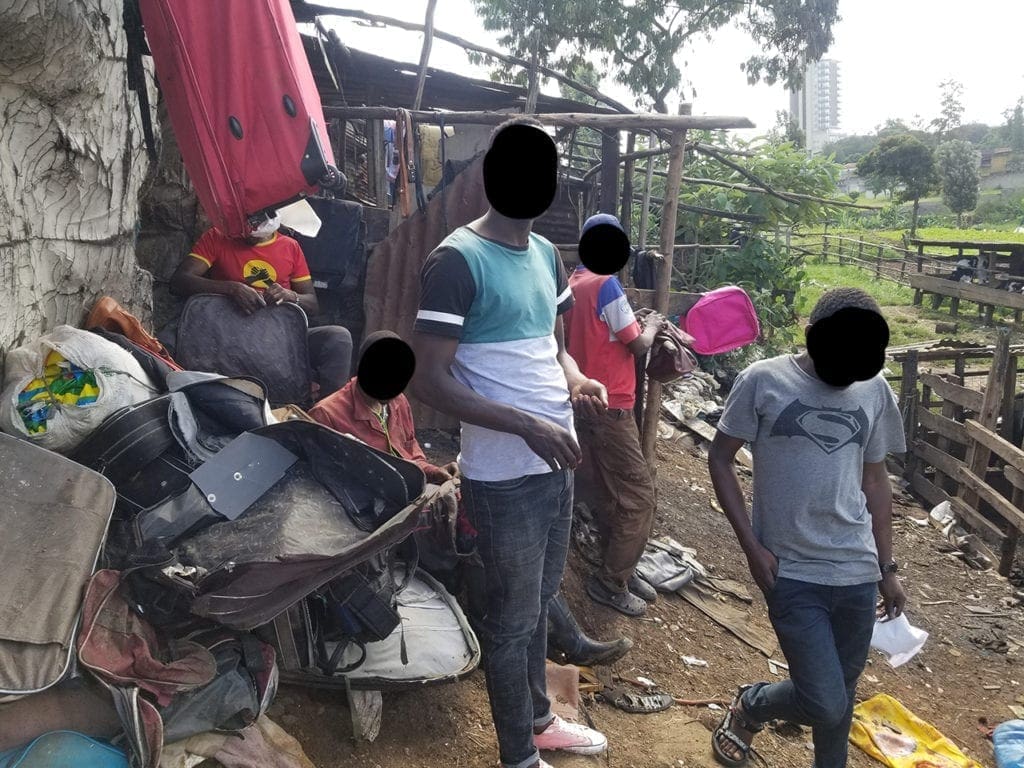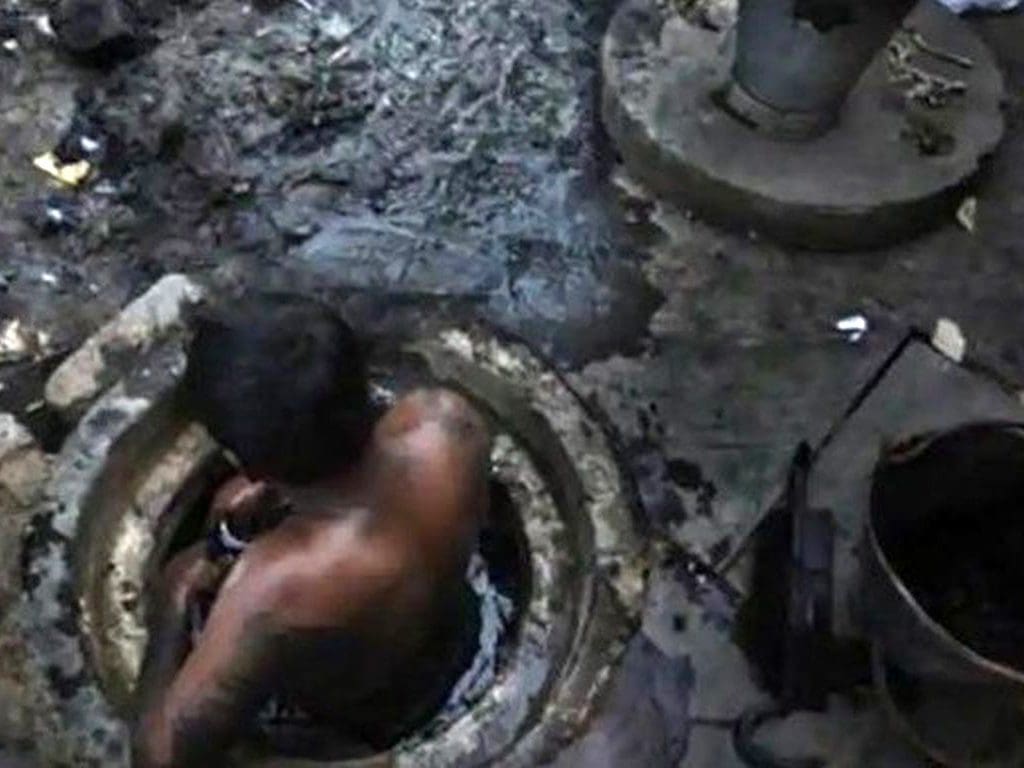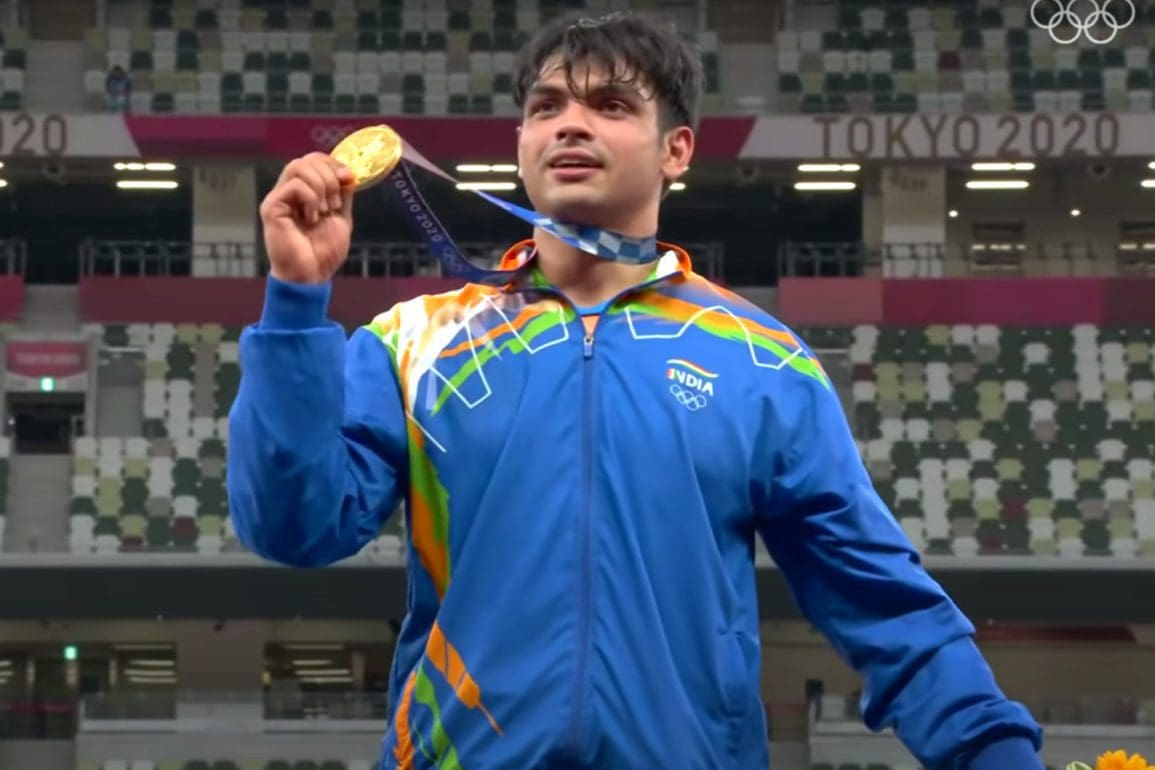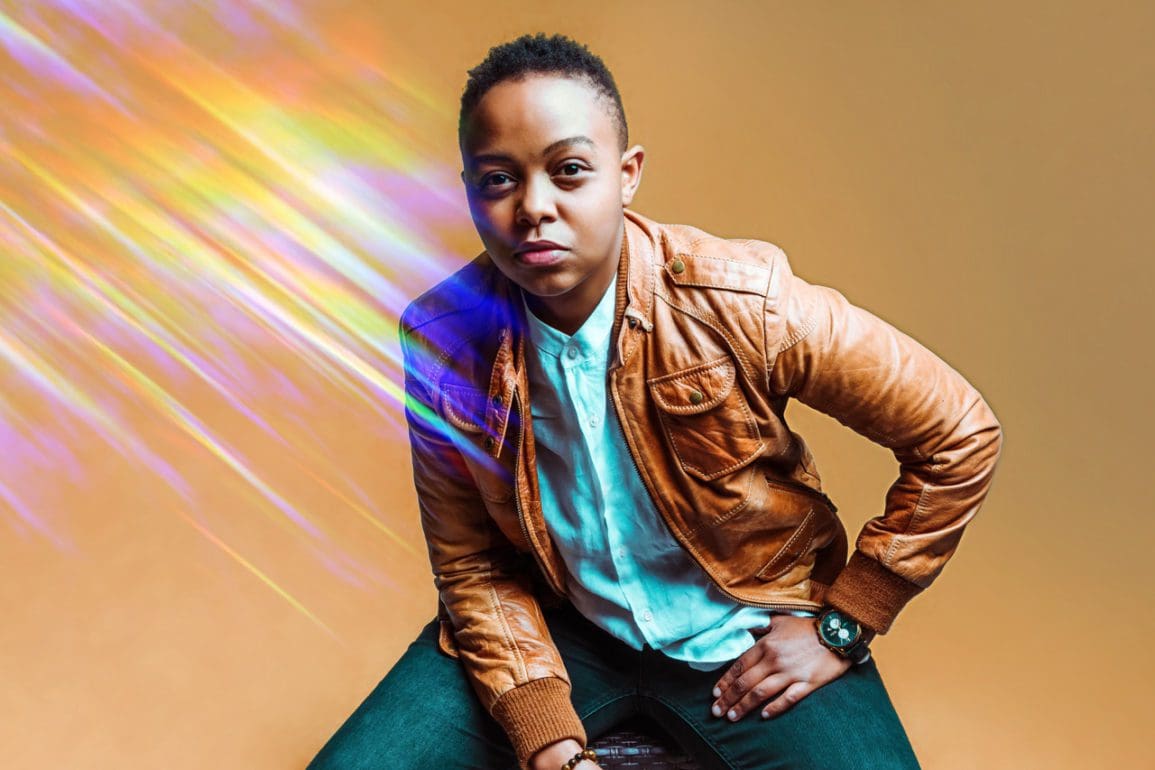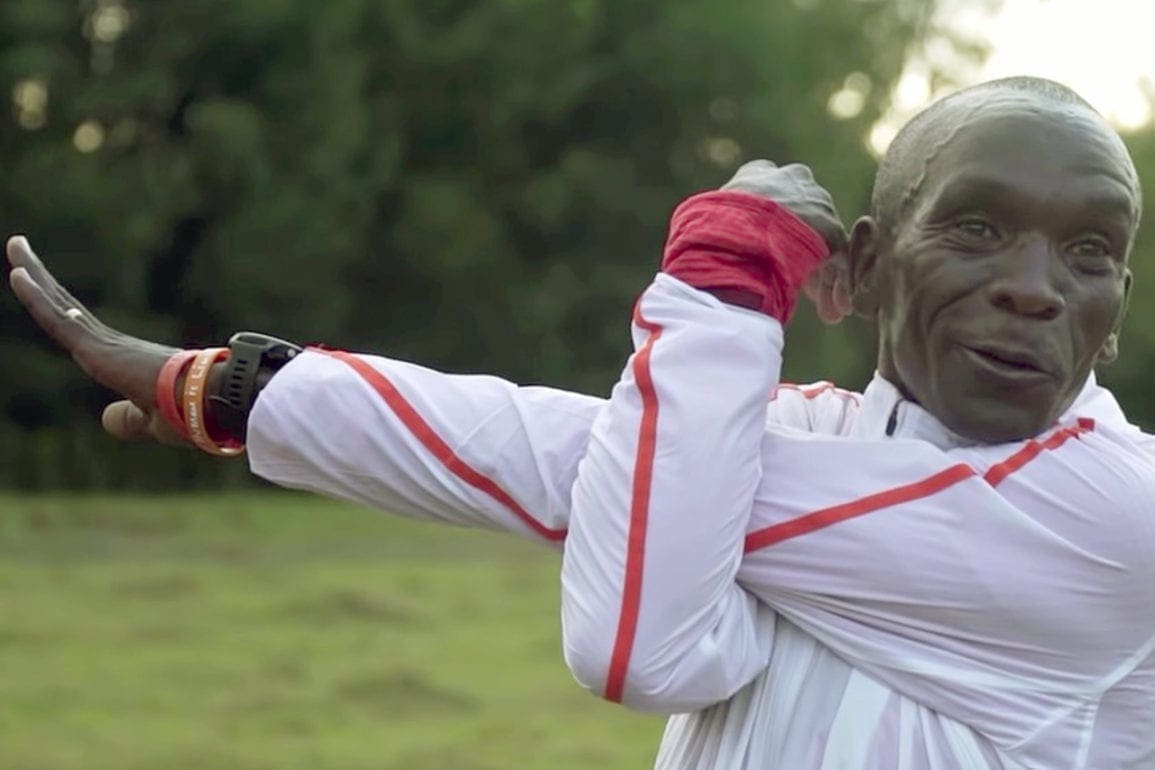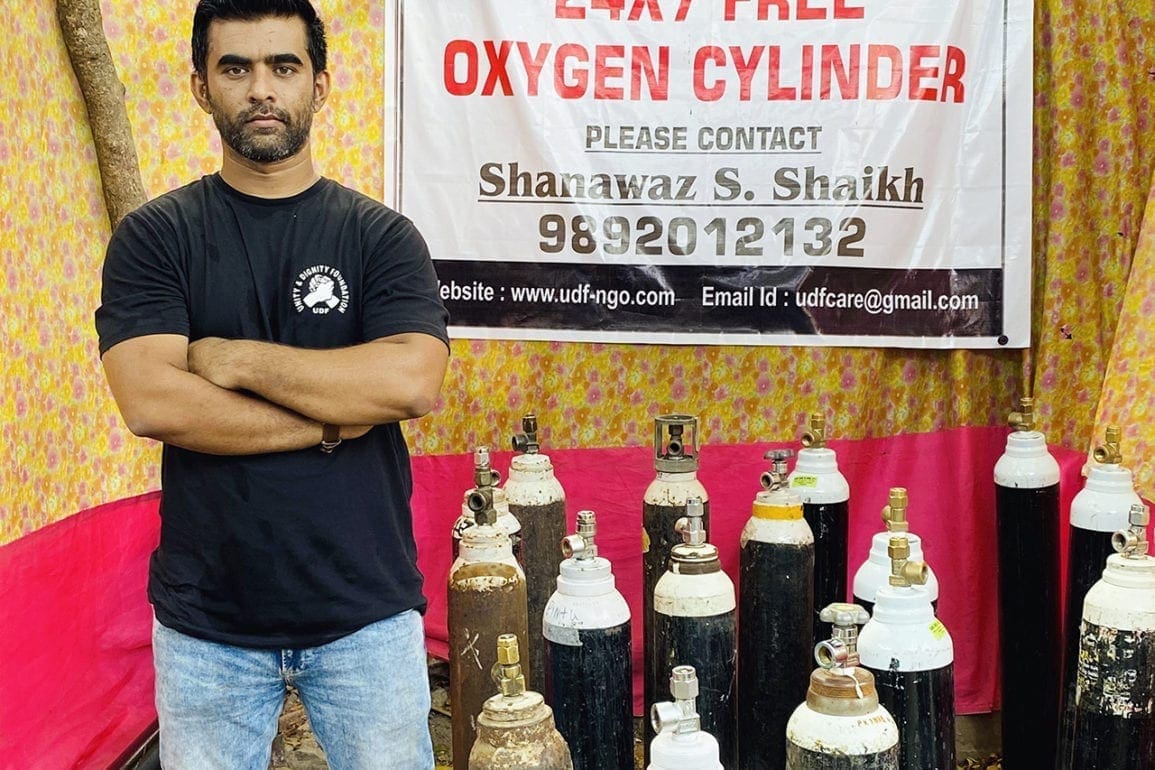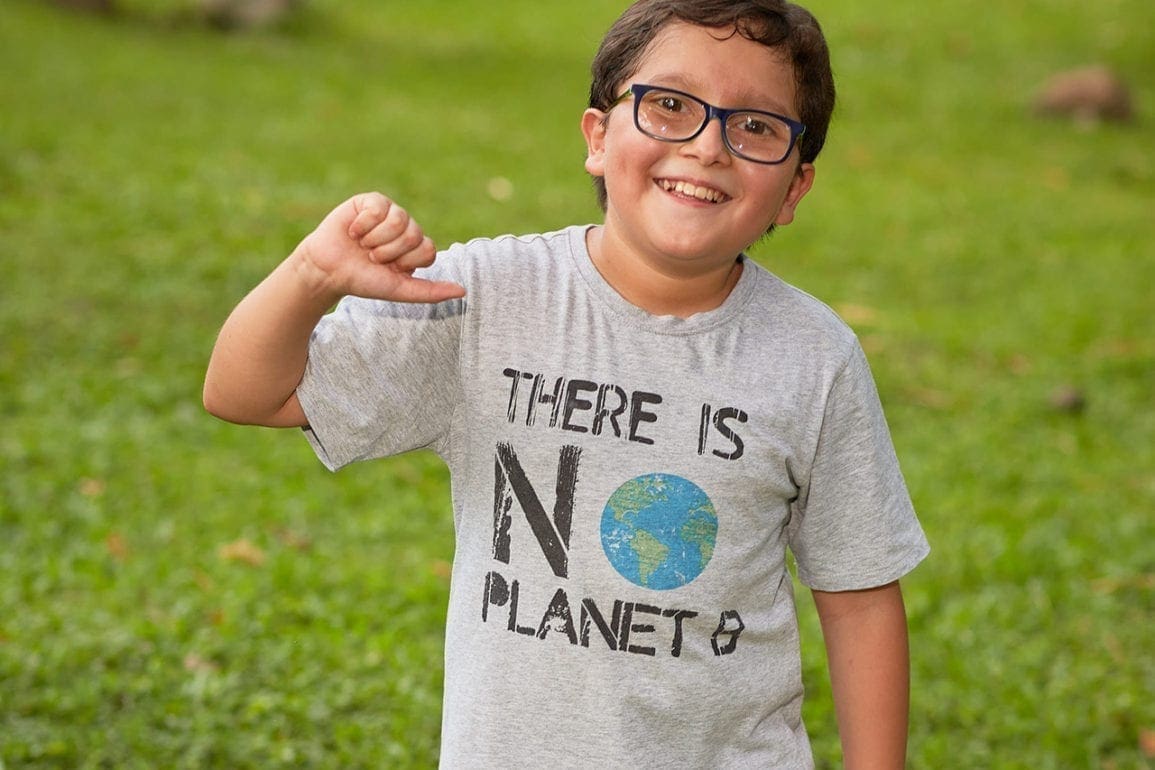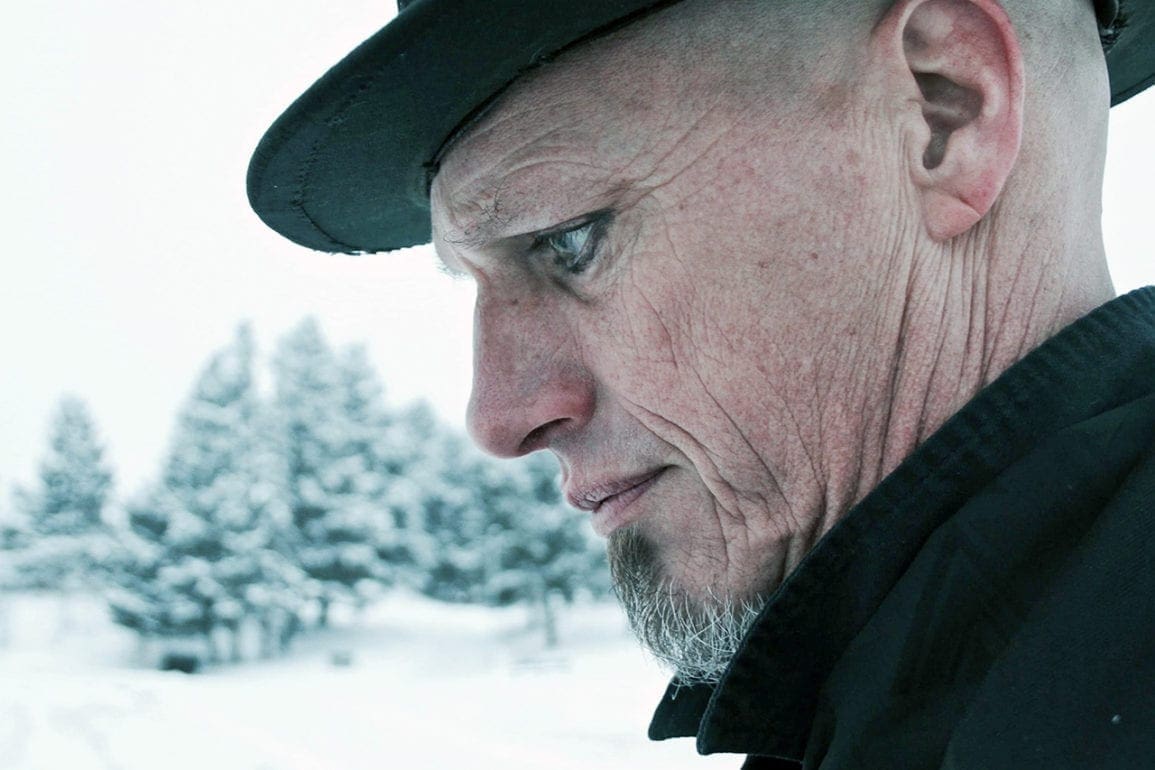Ex-gang leader faces reckoning for years of killing, rape, and terror
I became heartless and could do anything to anyone, including killing if that was my mission.
- 5 years ago
May 17, 2021

The following story includes detailed descriptions of criminal activities. Reader discretion advised.
NAIROBI, Kenya — Criminal activity seemed to be my only option for survival growing up in the slum of Mathare.
Most of my friends were already swept up in the lifestyle, and I saw no real opportunity to make an honest living.
I used to hustle to get money for my family, but they never knew what “work” I was doing.
It was much too late when I realized that I was deep into the world of crime. I was already the gang leader when guilt and shame came knocking at my door.
Killing, raping and dismembering became common activity. I lost my humanity
Villains as heroes
In my youth, I enrolled in a primary school fully funded by organizations that work towards uplifting lives in non-formal settlements. School used to be fun, and I would religiously attend classes without failure.
The school was the only place I would want to go to when I was young. I was lucky that education was free, thanks to sponsors who ensured that all ghetto kids had access. I would not have attended any school was it not for such programs.
Growing up, I thought being a bad guy was heroic, and I wanted to be one. I wanted to be untouchable and ‘above the law’ like those I idolized.
How I found myself in crime
It was after I completed my ordinary level education that I lost my way. All my friends and some of my classmates were already criminals. They were able to support their families financially when I could not afford a dime.
This realization compelled me to join them and subscribe to a gang that they called the Pirates. It was a deadly gang that did despicable things to the community.
At first, it was not easy for me to do some activities like raping and killing, but I could snatch phones and necklaces. I learned to cope with the new life and gradually grew in the wrong direction.
Crime became the order of the day. I could snatch someone’s phone with ease and flee, or break into houses and grab everything because it was easy.
Road to psychopathy
I became heartless and could do anything to anyone, including killing if that was my mission.
As I grew up and developed my crime networks, I started creating connections with criminals in Nairobi town, commonly referred to as the central business district (CBD).
These guys had connections with bankers in town, and they used to tell me when someone was going to withdraw a certain amount of money over the counter.
Our contacts in banking halls would send us photos of our target, with the attire they would be wearing on that day.
They used to tell us how much our target is carrying with them for accountability reasons at the end of the day. This tip made trailing them very easy, and so our job was to wait for the person outside the bank from a distance.
My team and I would ask for that amount when we caught up with our target. We’d take their phone, and throw it away to delay their efforts to inform the police.
I went to the extent of hiring vehicles to be used in the illegal arrest of our targets.
We would wait for our target near a bank, act like police officers trailing a criminal, and nab an innocent bank customer who had just withdrawn their hard-earned money.
Once we drove away with our ‘criminal’ in our car, we took all the money and their phone, threw the phone away to avoid trackers and dropped them somewhere far from the road with their head covered.
Sometimes I would order my boys to kill them if they appeared to be a threat afterward.
No shred of humanity
It stuns me now when I think about the atrocities I was able to commit. Sometimes I sit down and reflect on my past, and I wonder whether God will ever forgive me.
Staging fake demonstrations without a police permit was another tactic I employed with my boys. We would organize our team and start protesting from Mathare slum to town as we robbed people along the road.
At times we would join in legitimate demonstrations organized by human rights organizations. We would steal from people in the demos as they picketed, stab others and run away with valuable items.
My gang also used to collect taxes from slum dwellers illegally. I used to send my boys to collect taxes in exchange for security, a garbage dumping site, electricity, or water.
Another deadly gang called Mungiki previously collected those taxes, but we ejected them from Mathare slum. We took over from them and started terrorizing residents by literally imposing curfews on them.
Reign of terror
We raped women and girls to send messages of fear, warning, and threats to anyone who was thinking of sharing intel about us to the police.
This behavior was not new to the community because Mungiki used the same tactics before we came in.
I stepped up our gang’s operations by going to the point of grabbing pieces of land and selling them to unsuspecting people.
I even forced those living there to pay for the same land — opposing our demands called for severe consequences like death, rape, and other atrocities.
We killed those who defied our orders because we felt they were out there to spy on us.
At some point, we became friends with bad cops and even paid them for our immunity.
My gang and I used to pay for a weekly cover that made us untouchable even after committing a despicable crime.
The bad cops would rush to investigate the matter, but only pretend to be seriously involved. They were out there to destroy evidence and cover us.
My redemption journey
They transferred cops who overstayed in Mathare slum to various parts of the country and deployed a new team.
The new group of cops started eliminating our members daily. I tried to get close to them to befriend them, but things did not work in my favor.
They had a rigid system of intelligence, and they would catch up with us effortlessly.
In 2016 alone, cops killed over 50 members of the Pirates gang, which I led. I had to act strong even though I had started to lose energy to keep the war ablaze.
So I mobilized my gang and even hired goons out of the Pirates to join in the demonstrations against extrajudicial killings by police officers. We did that because we felt like cops were interfering with our slum lifestyle. I felt like I should be able to do what I wanted to do with my life.
I was drowning in the world of crime.
No stopping the hustle
The street demonstrations lasted for over a month. During this time, I would coach my boys to take advantage of the situation, rob commuters in public service vehicles, harm police officers with machetes, and even kill others.
The war between cops and us in collaboration with community members stepped up, and things started to become challenging for my team and me.
That is until human rights organizations came to our rescue, and then we felt relieved. They advocated for our arrest as opposed to extrajudicial killings by cops.
No sympathy for us devils
To be honest, we had done so much harm that everyone would likely approve of what cops were doing. Equal punishment for our deeds would be death.
Human rights give equal rights to all members of society. But at that moment, I felt as though I honestly did not deserve any rights.
I had lost very close friends to the cruel kiss of death. Others were arrested and never appeared in any courtroom.
We would wake up to the news that two or three of our own have been found dead with bullet wounds in their bodies.
Deaths sent serious message
These killings scared me, especially because cops knew I was the leader of that deadly gang.
I was the most-wanted outlaw, even more than anyone in all criminal gangs within Nairobi’s Eastland. Cops from all corners were pursuing me.
I arranged for a meeting with my boys, who were afraid of seeing me. Everyone feared for his life because we were carrying death on our sleeves. We were down to about 100 members in the gang from over 400. Police officers killed the rest.
I tabled new ideas on starting a new life, and the boys agreed with me.
Turning the corner
We took up the idea of farming and garbage collection in estates as an alternative way of earning beyond illegal activities.
Starting a new system of operation was a challenge because we were used to reaping without sowing. We struggled with the new life even as we kept losing members as a result of extrajudicial killings. Others fled to their rural villages for fear of what could happen at any moment.
Nobody believed we had downed our guns and machetes to become good people.
The community thought we were halting our behavior as we plan to hit back. That was not the case, though. We were serious about change.
No quarter from police
Even after we had adopted a new system of living, cops still pursued us. They kept on killing our members even after we reformed.
These killings are happening even now.
We are now at around 20 members since cops kill our guys daily.
We decided to set up a library next to our farm so that kids can come and read books for free. These kids act as our shield as we teach them to read and write, farming, and even train them in soccer. The “shields” deter cops from coming to disrupt us.
Sometimes they can shoot in the air from a distance to scare us, but that has never stopped us from doing what we do for the community.
All we are doing right now is paying back to society and trying to make everyone a friend even as we pray that they find a place in their hearts to forgive us.
The vegetables we plant serve the same people that we used to terrorize. Sometimes we decide to give them for free as a way of making them come closer to us.
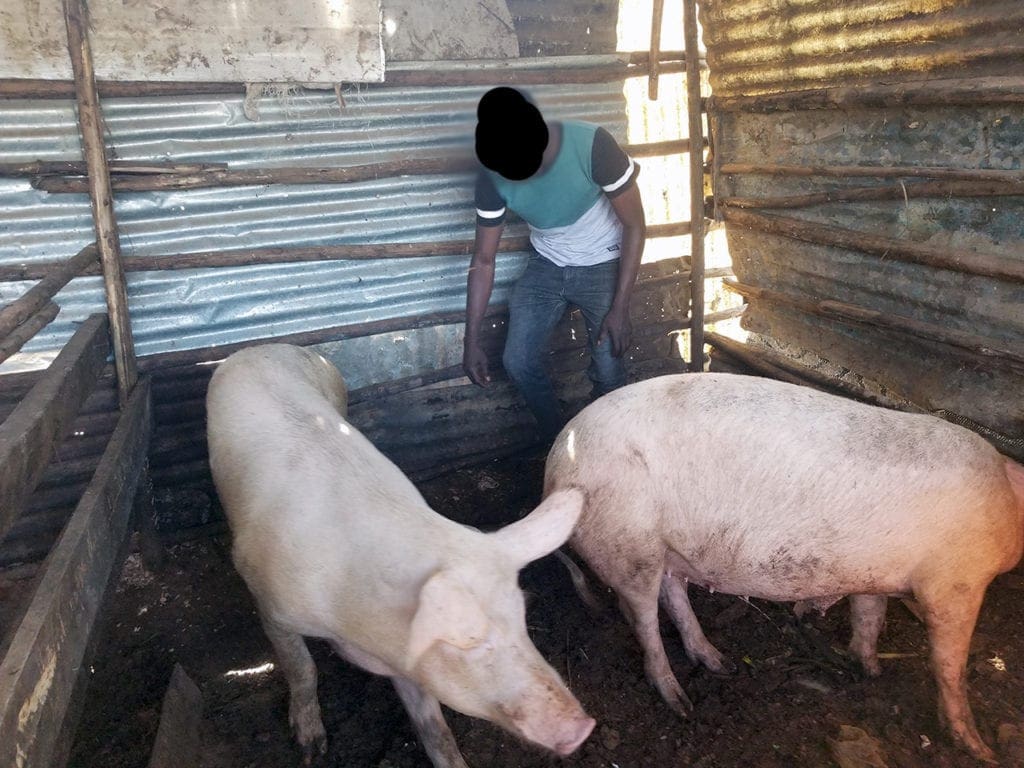
Sustainable approach
The pigs we are rearing provide a good source of income. We sell them to butchers in and outside of the slum.
We can now afford to sustain our families as responsible members of society. My team and I are now the people supplying clean water, vegetables, pork and managing garbage in estates. All these are sources of our revenues.
Sometimes I wonder why I never thought of starting this type of project before I went into crime.
Regret, sorrow
I only hope that those I hurt, killed, or raped will find a place in their hearts to forgive me.
It might not be easy for them to forgive me because what I did is despicable. I only pray that they can.
I am also sorry to my family for the pain they endured at the hands of the police. They suffered for my actions, even though they did not know the extent of my behavior.
To my friends in crime: It is time you come to your senses and realize that crime does not pay.
The only payment it offers is death, which none of us is ready to face.

